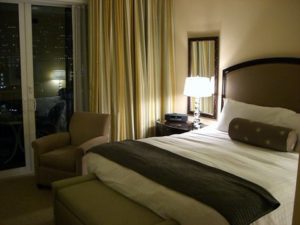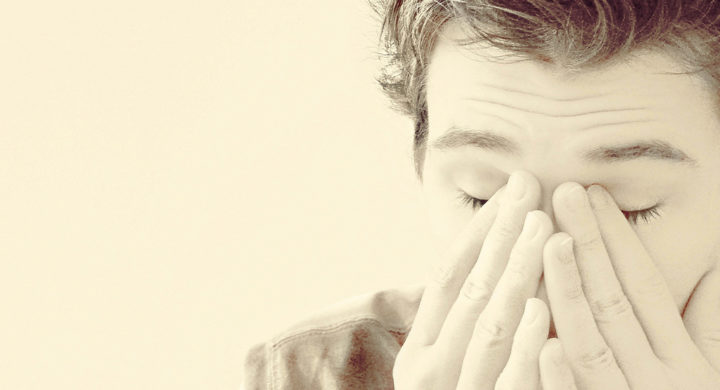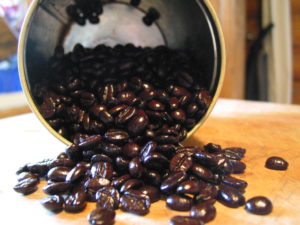Tired? 3 Ways to Get Better Sleep
Three easy ways to get better sleep tonight.
1. Avoid Alcohol in the Evening
Do you regularly complete your evening with a glass of wine, lager or even a shot to get some rest? Drinking liquor close to sleep time can have a negative effect on your sleep amount and quality. It was in the not so distant past that doctors suggested “night caps” for light sleepers or others encountering insomnia.
How Does Alcohol Influence or Change Your Sleep?
- Alters the nature of your rest. Even if you can sleep the entire night in the wake of drinking, you may not feel rested in the morning. Alcohol decrease the depth of your sleep and suppresses REM sleep which you need to feel rested.
- Disrupts the total time you are sleeping. You may wake up every now and again for the duration of the night. You could have issues falling back sleeping also.
- Increases the predominance of previous rest issue. A huge number of Americans experience the ill effects of obstructive sleep apnea. This can escalate after alcohol use.
Sleep apnea is a breathing related sleep issue. It is essentially episodes during sleep where you stop breathing for a short time. Alcohol can make this worse by contributing to narrowing of the air way.
2. Caffeine Before Bed Can Ruin Your Sleep
Caffeine is a stimulant the many people use to give them energy & alertness. The average caffeine use is 250 mg, which roughly 2 cups of coffee. This sum is not viewed as dangerous. In any case, caffeine can turn into an issue when you drink a lot of it or drink close to bed time. It remains in your system for a while, it takes around six hours for half of the caffeine you consumed to clear out.
Upsetting Sleep Cycle
The real issue with caffeine is its impacts on the sleep cycle. More caffeine inside that six-hour time frame broadens its stimulatory impacts. Gentle interruption of sleep and awakening during the night result in trouble with coming back to a relaxing state.
Creating Insomnia
Here and there caffeine can have more tenacious impacts on your rest cycle. Individuals who drink more than 250 mg of caffeine each day are normally drinking more than they can use.
An overly stimulated central nervous system is one that is producing adrenaline, which is a wakeful hormone. This excited state can have long-term consequences on the sleep cycle. Chronic insomnia can set in. Chronic insomnia includes being unable to fall asleep, to stay asleep or to have a restful sleep. It can bring about daytime sluggishness, trouble concentrating and crabbiness.
Caffeine before bed causes a decreased total sleep time. It also results in less deep sleep and a longer time to fall asleep.
Caffeine intake and poor sleep is a cycle easily repeated. You drink too much coffee today and you don’t sleep well tonight. You wake up tomorrow morning and feel worse for wear. Having no idea why you reach for another cup of coffee.
3. Rest in Total Darkness
The cutting edge room is loaded with lights like gleaming PC screens and clock radio. There are any number of flickering and flashing electronic gadgets in our rooms. Inconvenience is, unending presentation to light during the evening prompts to a large group of medical issues.
To comprehend why endless exposure to light around evening time is so awful, we have to consider human advancement. Before the end of the Stone Age, people were given two various types of light. Which is in charge of directing the circadian beat. Amid the day we had the sun, while during the evening we had the moon and the stars, and maybe the light from pit fires.

Melatonin suppression is key to understanding much of why LAN is so crappy for us. This workhorse biochemical is produced by the brain’s pineal gland at night. When it’s dark it’s level go up to regulate our sleep-wake cycle. It also lowers blood pressure, glucose levels, and body temperature.
These key physiological responses responsible for restful sleep. As neurologist George Brainard puts it, “Light works as if it’s a drug, except it’s not a drug at all.”
The piece of your cerebrum that controls your natural clock is the SCN, a gathering of cells in the hypothalamus. These cells react to light and dark signals. Nerves in our eyes detect light send a flag to the SCN advising the cerebrum that it’s an ideal opportunity to wake up.
In addition, it starts other processes, such as raising body temperature and creating hormones like cortisol. Our cortisol levels are generally low around evening time. This permits us to sleep, and higher amid the day. taking into consideration the adjustment of vitality levels and the regulation of resistant capacity.
Be that as it may, LAN raises cortisol levels around evening time, which upsets sleep. It also causes a large group of issues with body fat levels, insulin resistance, and systemic irritation. It additionally adds to sleep obligation and issues with the neuro-control of hunger.
The Cancer Link
This hormonal and biochemical interruption is making downstream impacts. Cancer is one of them. Researchers aren’t altogether certain why, but there seems to be a strong relationship. For instance, a 10-year study found that of more than 1,670 women exposed to higher power light in their sleeping surroundings had 22% higher chances of getting breast cancer than the individuals who slept in the dark. The analysts pointed the finger at hormonal disturbance created by low melatonin levels.
In another review, specialists embedded rats with breast cancer cells and after that gave them blood from various women. Rats accepting blood from women who were around low light around evening time had their tumor development decreased.
However, those with blood from women who exposed to brilliant light during the evening weren’t offered this same impact. This has concerning ramifications for shift workers. Case-controlled reviews have demonstrated that medical attendants who work night shifts are more at risk for breast cancer contrasted with those who work in the day.
This examination focuses to one essential truth: We should keep our rooms as dim as could reasonably be expected and stay away from blue light before rest. Keeping that in mind, you ought to kill all your light-emanating devices and close the blinds. If possible, abstain from using your tablet PC or cell phone in the hour going before going to bed.
Follow these 3 steps and you’re on your way to better sleep.


